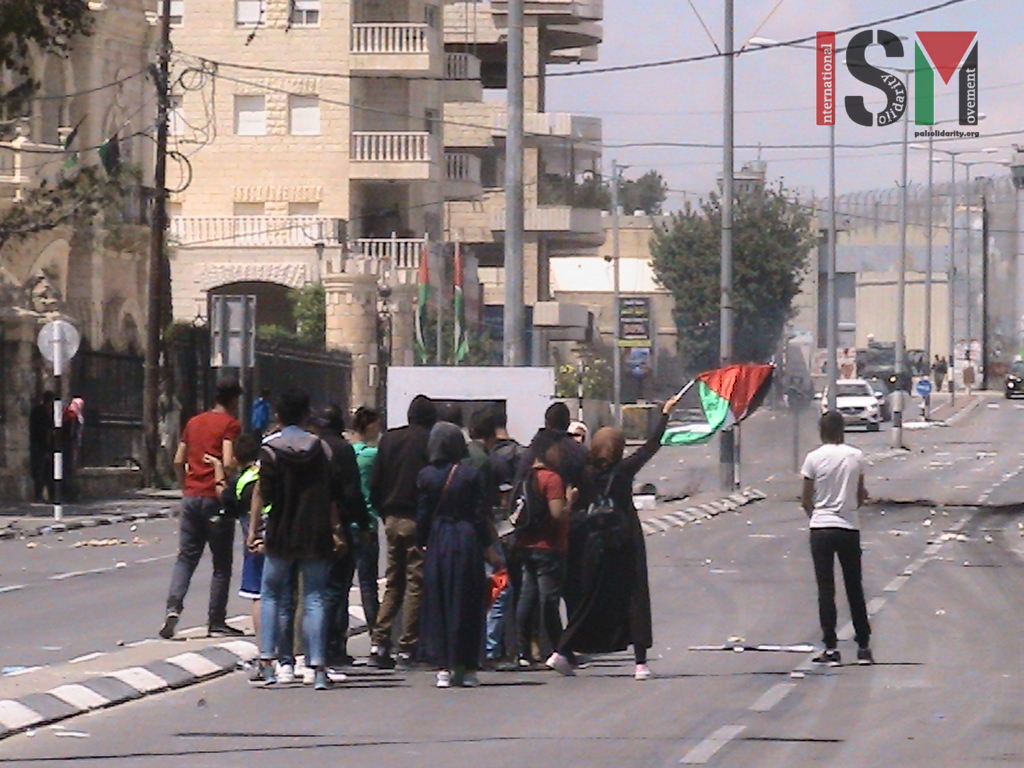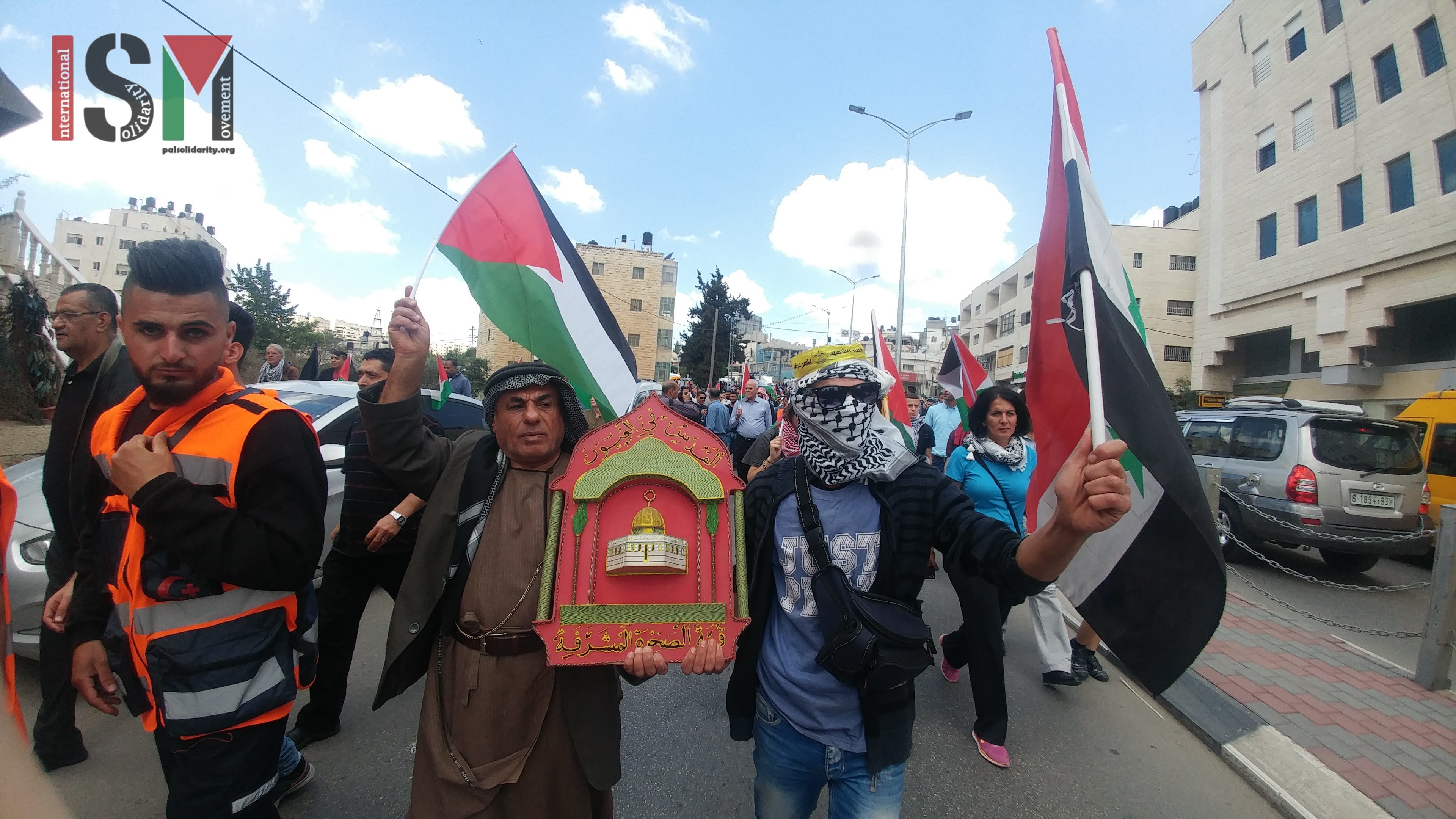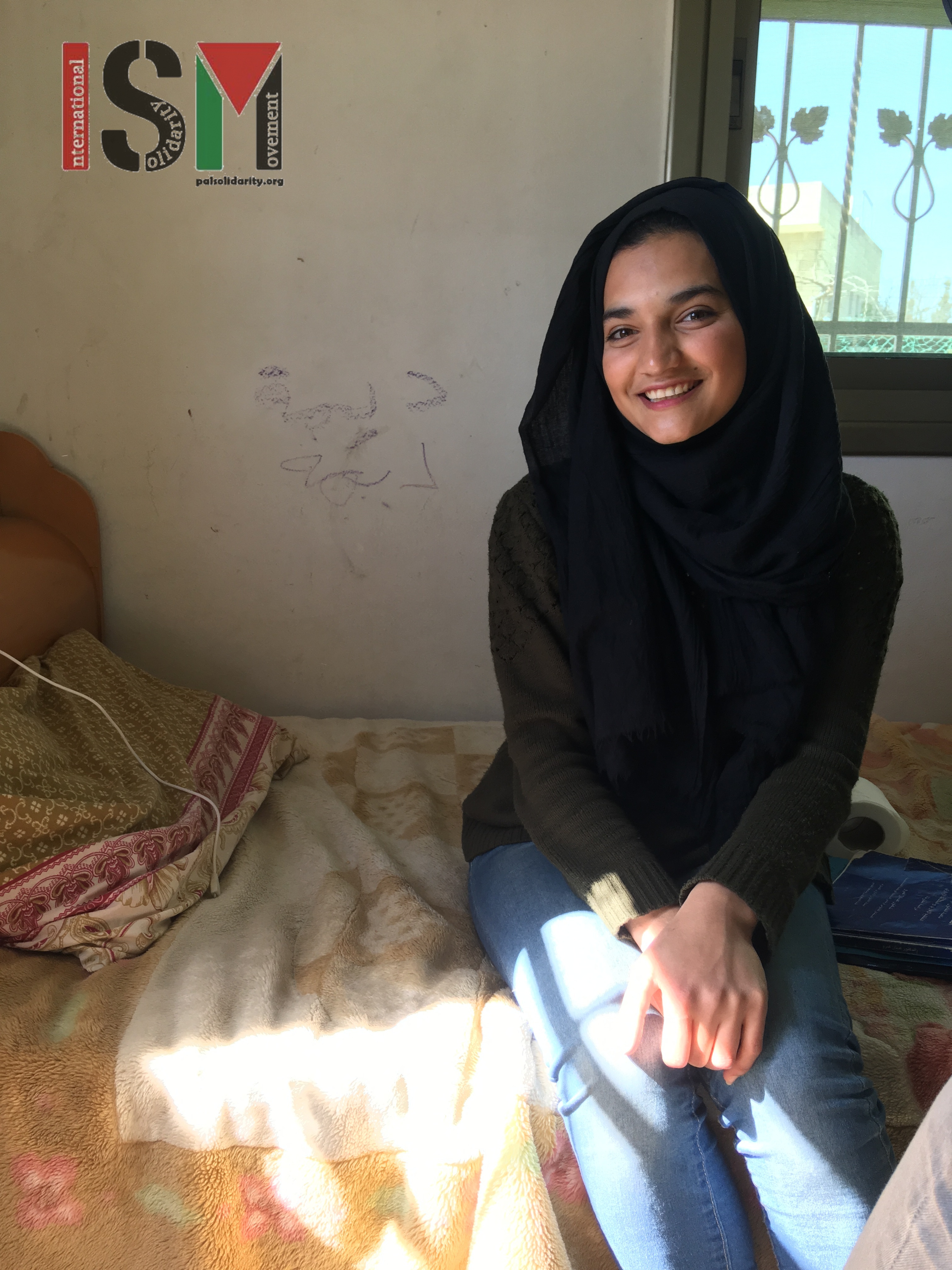Tag: Israeli Army
-
Bethlehem protests the US embassy relocation
On the 14th May 2017, the day the new US embassy to Israel was due to open in Jerusalem, protests were held across Palestine. In Bethlehem, hundreds of children, women and men marched from Nisan Square to the gate in the apartheid wall separating them from Jerusalem. This unarmed protest was immediately met by brutal…
-
“We witnessed at least 40 Palestinians dropping to the ground from tear gas inhalation”
On Monday the 14th of May at 11am, thousands of Palestinians gathered in Arafat Square in Ramallah and proceeded to march to Qalandiya checkpoint to confront Israeli forces. The US embassy was officially moved to Jerusalem on this same day. Palestinians held signs and placards to assert their right of return and in remembrance of…
-
A recollection of Dima al-Wawi’s imprisonment and a remembrance of Hamza Zamara
18th March 2018 | International Solidarity Movement, al Khalil team | Occupied Palestine Two years ago Dima al-Wawi woke up for school feeling sick. Her throat hurt and her lymph nodes were swollen. Her parents were already out of the house, on their land that is split in two by the illegal settlement Karmi Zur…



